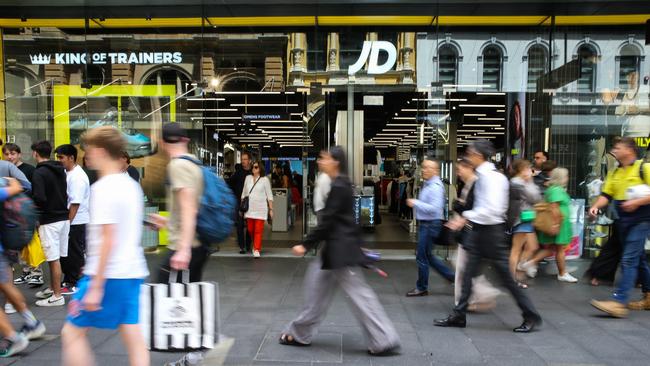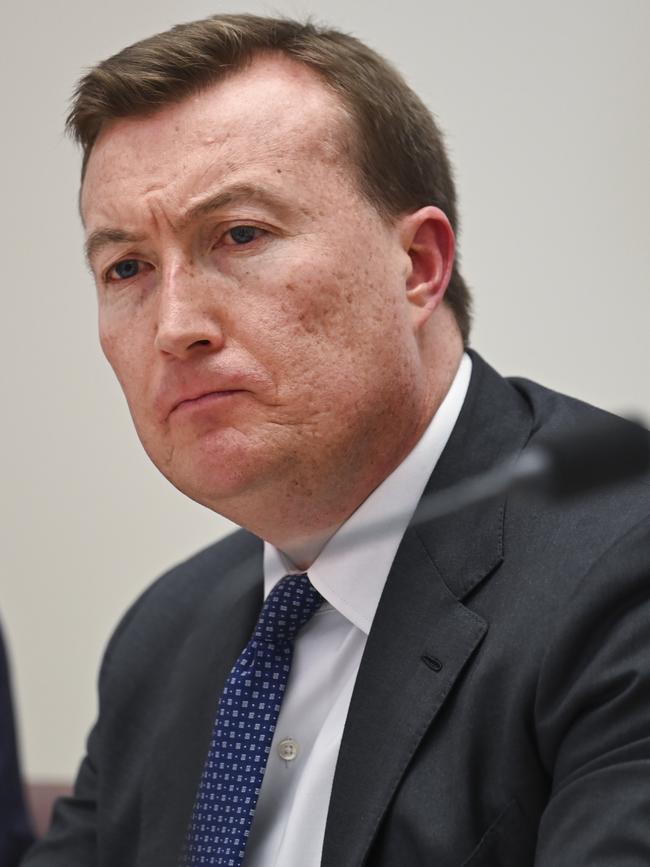
I’ve been in the US and Canadian capitals over the past week, and what I’ve heard has put an even greater fire under me to advocate for an Australia that’s more globally competitive when it comes to investment decision-making.
The US, in particular, is already a highly competitive destination for global capital for many reasons, including their tax system and market size. The overall cost of doing business in the US is lower than in Australia, made starkly clear by the US business leader who told me this week that they estimate “Australia now has six times the compliance costs of some competitors”.
This matters because a dollar that goes elsewhere cannot go to us. And our island nation needs that private investment to grow our economy and our quality of life. Treasurer Jim Chalmers has recently voiced this imperative.
What’s alarming for anyone interested in Australian economic growth is that countries like the US are heading in an even more competitive direction.
President-Elect Donald Trump has made it abundantly clear that he intends to win more global investment.
Most recently he promised to fast-track approvals and permits for companies investing more than $1bn in the US. Earlier this year he noted that under his administration there would be a campaign against red tape holding back businesses and forcing up costs, saying: “To stop this onslaught and lower prices I am pledging today that in my second term we will eliminate a minimum of 10 old regulations for every one regulation.”
The main headline, however, has been the potential corporate tax rate cut to as low as 15 per cent for companies making products in the US.
Goldman Sachs has estimated that this reduction would increase returns by about 4 per cent. When capital is making decisions about where to go, that will make a difference. More will flow to the US, and we may well lose out.
Other countries have got the memo. The Canadian opposition – currently in pole position for the next election – has made this abundantly clear.
The Opposition Leader, Pierre Poilievre, has promised to cut taxes and speed up regulatory approvals.
Businesses will react to these kinds of changes. These kinds of changes will affect decision making. And so the race is on.
Unfortunately, in Australia we are starting a little behind and we need to do more than simply keep up.
We need to get ahead. We’re starting this new race for global capital with stagnant productivity growth, presently sitting at an annualised rate of -0.8 per cent. Our per capita GDP has gone backwards for almost two years.
At the same time, Australia has one of the least competitive company tax rates in the OECD. We’re third highest, ahead of only Columbia and Portugal. We’ve also added, rather than eliminated, a lot of new regulation. That includes making our Fair Work Act now four volumes in length, and 1635 pages (not including regulations, awards and enterprise agreements).

And so how do we tempt business investment here with all that to deal with?
Yes, Australia is a wonderful nation, with vast physical resources and a world-beating culture. However, the direction in which we are heading explains why I was also told by a North American business leader this week that he thinks Australia is a “less welcoming place to do business” than it once was.
Another told me that “we have a number of businesses looking to restructure out of Australia and take their investment elsewhere, particularly to places such as Singapore”.
These are direct quotes, and they’re upsetting to hear when you know what they mean for Australia, and for Australian jobs.
Like all nations, we’re already under massive competitive pressure for investment. But what’s now crystal clear is that our existing domestic challenges to securing investment are about to be drastically exacerbated by the actions of our competitor nations, including the US.
That’s why we need all sides of politics to produce clear, economy-growing agendas as the centrepieces of their respective election pitches heading into the new year.
Bran Black is chief executive of Business Council of Australia.



As I’ve just returned from a week in North America learning from local business leaders, one thing is clearer than ever in my mind: if Australia is to be an attractive place for global businesses to invest, hire and grow, we need to get our skates on – and fast.